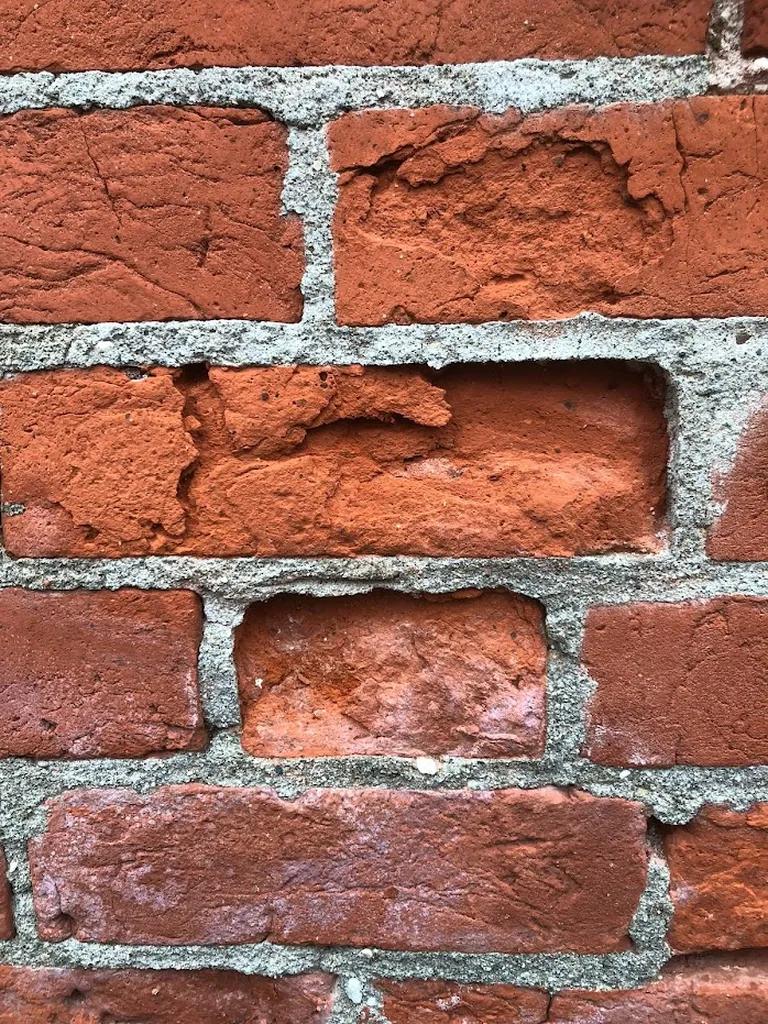Maintaining the structural integrity of your chimney is crucial for the safety and longevity of your home. One common issue that can arise is the deterioration of mortar joints, which can compromise the stability of the entire chimney structure. In this article, we will discuss the importance of repairing mortar joints on your chimney, the factors that can affect the cost of this repair, and why it is essential to address this issue promptly.
Table of Contents
- Signs of deteriorating mortar joints
- Importance of timely repair
- Factors affecting the cost of repairs
- Choosing the right professional for the job
- Q&A
- The Conclusion

Signs of deteriorating mortar joints
Cracked and crumbling mortar joints are a common sign of deterioration on your chimney. When the mortar joints start to crack and fall apart, water can seep into the chimney structure, causing further damage over time. It is important to address this issue promptly to prevent costly repairs down the line.
Another indication of deteriorating mortar joints is visible gaps between the bricks. If you notice gaps starting to form between the bricks on your chimney, it may be a sign that the mortar is weakening and needs to be repaired. Ignoring these gaps can lead to structural instability and potential safety hazards. Investing in repairing the mortar joints now can save you money in the long run.

Importance of timely repair
Having timely repairs done on the mortar joints of your chimney is crucial for maintaining the structural integrity of your home. Ignoring these repairs can lead to a multitude of issues that can be both dangerous and costly in the long run. By addressing these repairs promptly, you can prevent further damage and ensure the safety of your home.
Some key reasons why timely repair of mortar joints on your chimney is important include:
- Preventing water damage: Cracked mortar joints can allow water to seep into the chimney, leading to mold growth and deterioration of the chimney structure.
- Preventing chimney fires: Damaged mortar joints can cause heat to escape and reach combustible materials in your home, increasing the risk of a chimney fire.
- Increasing energy efficiency: Properly sealed mortar joints can improve the efficiency of your chimney, reducing energy costs.

Factors affecting the cost of repairs
When it comes to repairing mortar joints on your chimney, there are several factors that can impact the overall cost of the project. One significant factor is the extent of damage to the mortar joints. Minor cracks and deterioration may be relatively inexpensive to repair, while more severe damage that requires extensive rebuilding can be costly. Additionally, the size and height of your chimney can also affect the cost, as taller chimneys or those in hard-to-reach locations may require more time and labor to repair.
Other factors that can influence the cost of repairing mortar joints include the materials used for the repairs, the expertise of the contractor, and the time of year when the work is being done. Using high-quality mortar and hiring a skilled mason can impact the overall cost but can also ensure that the repairs are long-lasting. Finally, scheduling repairs during the off-season when contractors are less busy may result in lower costs compared to peak times when demand is high.
Choosing the right professional for the job
When it comes to repairing mortar joints on your chimney, it is essential to choose the right professional for the job. The cost of this repair can vary depending on the extent of damage and the expertise of the contractor. Hiring a skilled mason with experience in chimney repairs is crucial to ensure the longevity and structural integrity of your chimney.
Here are some factors to consider when choosing the right professional for repairing mortar joints on your chimney:
- Experience in chimney repairs
- Reputation in the industry
- Quality of workmanship
- Cost of services
Q&A
Q: Why is it important to repair mortar joints on your chimney?
A: Repairing mortar joints on your chimney is important to prevent water penetration, structural damage, and potential safety hazards.
Q: How can I tell if the mortar joints on my chimney need repair?
A: Cracks, gaps, crumbling mortar, or signs of water damage are indicators that the mortar joints on your chimney may need repair.
Q: How much does it cost to repair mortar joints on a chimney?
A: The cost of repairing mortar joints on a chimney can vary depending on the extent of the damage and the size of the chimney, but it typically ranges from a few hundred to a few thousand dollars.
Q: Can I repair the mortar joints on my chimney myself?
A: While some minor repairs may be possible for experienced DIYers, it is recommended to hire a professional mason to ensure the job is done correctly and safely.
Q: How long does it take to repair mortar joints on a chimney?
A: The timeline for repairing mortar joints on a chimney can vary depending on the extent of the damage, but it typically takes a few days to complete the repairs.
Q: Are there any preventative measures I can take to avoid costly repairs on my chimney?
A: Regular inspections and maintenance, including sealing and waterproofing, can help prevent the need for costly repairs on your chimney in the future.
The Conclusion
In conclusion, ensuring the structural integrity of your chimney by repairing mortar joints is a crucial maintenance task that should not be overlooked. By addressing deteriorating mortar joints promptly, you can prevent water leaks, chimney fires, and costly damage to your home. Regular inspections by a professional mason and timely repairs will ultimately save you money in the long run and preserve the safety and efficiency of your chimney. Remember, investing in the maintenance of your chimney is an investment in the safety and value of your home.


